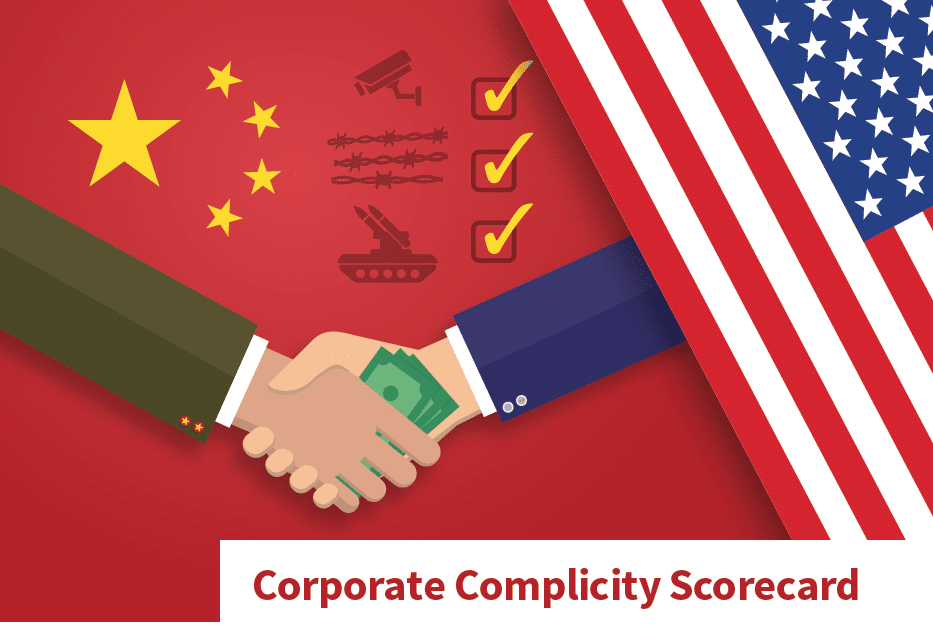Executive Summary
The US private sector increasingly finds itself at the heart of US-China geopolitical tension. In their endeavor to capture Chinese markets and boost their bottom lines, American corporations have increasingly supported Beijing’s military modernization, surveillance state, domestic securitization, and attendant human rights violations. As a result of this growing dependency, some corporations engage in political lobbying in the US in ways that ultimately serves Beijing’s interests while potentially undermining the values and principles that undergird the western democratic order.
Until now, scrutiny of US industrial actors’ complicity with problematic actions of the Chinese state has been scattered and ad hoc, without comprehensive or comparative assessments across players. This report fills this important gap: it presents broad-ranging assessments of the nature of American corporations’ involvement in China, and then grades them based on a transparent and replicable new methodology.
This research does not assume that doing business in China is inherently wrong. However, support for Beijing’s military modernization, surveillance state, and human rights violations may contradict professed corporate ethics, mislead consumers, and risk violating relevant laws in the US and elsewhere. Many US companies began their relationships with China well before China revealed itself as an aggressive international player. Companies which do substantial business with China need to reassess their role—not just the benefit they receive, but the degree to which they could be said to facilitate China’s abusive domestic and international policies.
Based on both existing and new research findings, the report seeks to systematically put together all the pieces of a company’s involvement in China and assigns each a grade from A to F. Each company profile represents an examination that is much more comprehensive than what has been published to-date and turns the findings into a grade that allows readers to compare how they perform.
The authors reviewed eight well-known firms—Amazon, Apple, Dell, Facebook, GE, Google, Intel, and Microsoft— for potentially problematic linkages that may directly or indirectly support China’s state surveillance, military modernization, and human rights violations. Hundreds of primary and secondary sources were fed into 12 indicator categories related to operations and partnerships, leading to a final grade. While the development of such a transparent rating methodology is the key innovation of this report, it also features a substantial number of previously unreported facts.
The research findings are wide-ranging and invite further scrutiny of how US companies’ engagement with China relate to US-sanctioned Chinese entities such as the Xinjiang Construction and Production Corps as well as US laws such as the US Trafficking Victims Protection Act. Overall, this project aims to inspire the development of new best practices for US industry. Rather than merely condemning the US private sector, the report develops a grading scorecard system in order to incentivize corporations to equally promote freedoms and rights everywhere.
Corporate Complicity Scorecard
Form to download the PDF version of "Corporate Complicity Scorecard."


